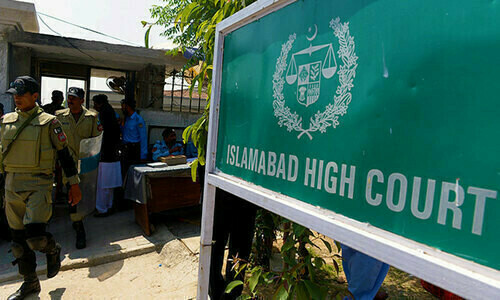NEW YORK, March 1: President Pervez Musharraf and US Secretary of State Colin Powell have established an unusual rapport since Pakistan came on board with the United States in its war against global terrorism.
The relationship, according to a report in the New York Times, "is one defined by mutual suspicion, mutual need, awkward disclosures about Pakistan's nuclear activities and a range of urgent issues from tensions with India to the drive to crush terrorism and find Osama bin Laden."
Mr Powell and Gen Musharraf who have spoken more than 81 times since Sept 11 attacks, (as revealed in a testimony to the US Senate recently), have established a relationship in the backdrop of their army careers.
Sometimes they shed their official mode and "slip into 'general to general' mode" said the New York Times on Monday. A revealing exchange between President Musharraf and the US Secretary of State, according to State Department officials, occurred in mid-2002, when India and Pakistan were massing troops and engaging in alarming "chatter" about resorting to nuclear weapons.
Mr Powell phoned Gen Musharraf but addressed him not as the secretary of state to a president but as one former general to another. "All this talk about nukes, you know, it's unthinkable," he told Gen Musharraf, the paper said quoting US officials.
"I know that," Gen Musharraf was said to have replied. "Well, we've got to stop talking about it, and we've got to find a way out of this," the secretary said, adding that later that autumn, tensions between India and Pakistan began to subside.
Whether the situation was eased by Mr Powell's counsel or simply by the sudden sobering up of the leaders of India and Pakistan, the story illustrates the intensity of the Pakistani-American relationship.
It is one defined by mutual suspicion, mutual need, awkward disclosures about Pakistan's nuclear activities and a range of urgent issues from tensions with India to the drive to crush terrorism and find Osama bin Laden, the paper said.
Washington's other priority is to learn as much as possible about the activities of Abdul Qadeer Khan, the Pakistani scientist who admitted sharing nuclear technology with Iran and North Korea, the paper said.
Pakistan's cooperation on those matters is so great, American officials say, that they have had no choice but to avoid criticizing Pakistan for pardoning Dr Khan. Some officials acknowledged that another country might have been excoriated if it had given a slap on the wrist to such a figure, the Times said.











































Dear visitor, the comments section is undergoing an overhaul and will return soon.